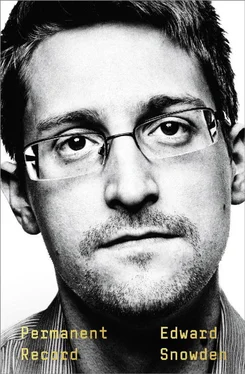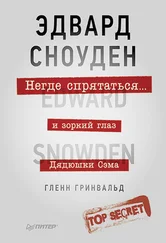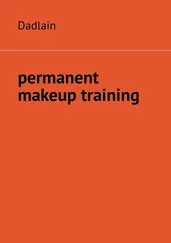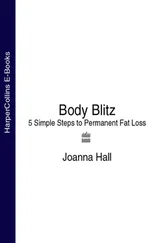At the beginning of my sophomore year, though, I started getting tired a lot and falling asleep more than usual—not just at school anymore, but now even at the computer. I’d wake up in the middle of the night in a more or less upright position, the screen in front of me full of gibberish because I’d passed out atop the keys. Soon enough my joints were aching, my nodes were swollen, the whites of my eyes turned yellow, and I was too exhausted to get out of bed, even after sleeping for twelve hours or more at a stretch.
After having had more blood taken from me than I’d ever imagined was in my body, I was eventually diagnosed with infectious mononucleosis. It was both a seriously debilitating and seriously humiliating illness for me to have, not least because it’s usually contracted through what my classmates called “hooking up,” and at age fifteen the only “hooking up” I’d ever done involved a modem. School was totally forgotten, my absences piled up, and not even that made me happy. Not even an all-ice-cream diet made me happy. I barely had the energy to do anything but play the games my parents gave me—each of them trying to bring the cooler game, the newer game, as if they were in a competition to perk me up or mitigate their guilt about the divorce. When I no longer had it in me to even work a joystick, I wondered why I was alive. Sometimes I’d wake up unable to recognize my surroundings. It would take me a while to figure out whether the dimness meant that I was at my mother’s condo or my father’s one-bedroom, and I’d have no recollection of having been driven between them. Every day became the same.
It was a haze. I remember reading The Conscience of a Hacker (aka The Hacker’s Manifesto ), Neal Stephenson’s Snow Crash , and reams of J. R. R. Tolkien, falling asleep midchapter and getting the characters and action confused, until I was dreaming that Gollum was by my bedside and whining, “Master, Master, information wants to be free.”
While I was resigned to all the fever dreams sleep brought me, the thought of having to catch up on my schoolwork was the true nightmare. After I’d missed approximately four months of class, I got a letter in the mail from Arundel High informing me that I’d have to repeat my sophomore year. I’d say I was shocked, but the moment I read the letter, I realized that I’d known this was inevitable and had been dreading it for weeks. The prospect of returning to school, let alone of repeating two semesters, was unimaginable to me, and I was ready to do whatever it took to avoid it.
Just at the point when my glandular disease had developed into a full-on depression, receiving the school news shook me out of my slump. Suddenly I was upright and getting dressed in something other than pajamas. Suddenly I was online and on the phone, searching for the system’s edges, searching for a hack. After a bit of research, and a lot of form-filling, my solution landed in the mailbox: I’d gotten myself accepted to college. Apparently, you don’t need a high school diploma to apply.
Anne Arundel Community College was a local institution, certainly not as venerable as my sister’s school, but it would do the trick. All that mattered was that it was accredited. I took the offer of admission to my high school administrators, who, with a curious and barely concealed mixture of resignation and glee, agreed to let me enroll. I’d attend college classes two days a week, which was just about the most that I could manage to stay upright and functional. By taking classes above my grade level, I wouldn’t have to suffer through the year I’d missed. I’d just skip it.
AACC was about twenty-five minutes away, and the first few times I drove myself were perilous—I was a newly licensed driver who could barely stay awake at the wheel. I’d go to class and then come directly home to sleep. I was the youngest person in all my classes, and might even have been the youngest person at the school, alternately a mascot-like object of novelty and a discomfiting presence. This, along with the fact that I was still recovering, meant that I didn’t hang out much. Also, because AACC was a commuter school, it had no active campus life. The anonymity of the school suited me fine, though, as did my classes, most of which were distinctly more interesting than anything I’d napped through at Arundel High.
* * *
BEFORE I GO any further and leave high school forever, I should note that I still owe that English class assignment, the one marked Incomplete. My autobiographical statement. The older I get, the heavier it weighs on me, and yet writing it hasn’t gotten any easier.
The fact is, no one with a biography like mine ever comes comfortably to autobiography. It’s hard to have spent so much of my life trying to avoid identification, only to turn around completely and share “personal disclosures” in a book. The Intelligence Community tries to inculcate in its workers a baseline anonymity, a sort of blank-page personality upon which to inscribe secrecy and the art of imposture. You train yourself to be inconspicuous, to look and sound like others. You live in the most ordinary house, you drive the most ordinary car, you wear the same ordinary clothes as everyone else. The difference is, you do it on purpose: normalcy, the ordinary, is your cover. This is the perverse reward of a self-denying career that brings no public glory: the private glory comes not during work, but after, when you can go back out among other people again and successfully convince them that you’re one of them.
Though there are a score of more popular and surely more accurate psychological terms for this type of identity split, I tend to think of it as human encryption. As in any process of encryption, the original material—your core identity—still exists, but only in a locked and scrambled form. The equation that enables this ciphering is a simple proportion: the more you know about others, the less you know about yourself. After a time, you might forget your likes and even your dislikes. You can lose your politics, along with any and all respect for the political process that you might have had. Everything gets subsumed by the job, which begins with a denial of character and ends with a denial of conscience. “Mission First.”
Some version of the above served me for years as an explanation of my dedication to privacy, and my inability or unwillingness to get personal. It’s only now, when I’ve been out of the IC almost as long as I was in it, that I realize: it isn’t nearly enough. After all, I was hardly a spy—I wasn’t even shaving—when I failed to turn in my English class assignment. Instead, I was a kid who’d been practicing spycraft for a while already—partly through my online experiments with game-playing identities, but more than anything through dealing with the silence and lies that followed my parents’ divorce.
With that rupture, we became a family of secret-keepers, experts at subterfuge and hiding. My parents kept secrets from each other, and from me and my sister. My sister and I would eventually keep our own secrets, too, when one of us was staying with our father for the weekend and the other was staying with our mother. One of the most difficult trials that a child of divorce has to face is being interrogated by one parent about the new life of the other.
My mother would be gone for stretches, back on the dating scene. My father tried his best to fill the void, but, at times, he would become enraged by the protracted and expensive divorce process. Whenever that happened, it would seem to me as if our roles had reversed. I had to be assertive and stand up to him, to reason with him.
It’s painful to write this, though not so much because the events of this period are painful to recall as because they’re in no way indicative of my parents’ fundamental decency—or of how, out of love for their children, they were eventually able to bury their differences, reconcile with respect, and flourish separately in peace.
Читать дальше












